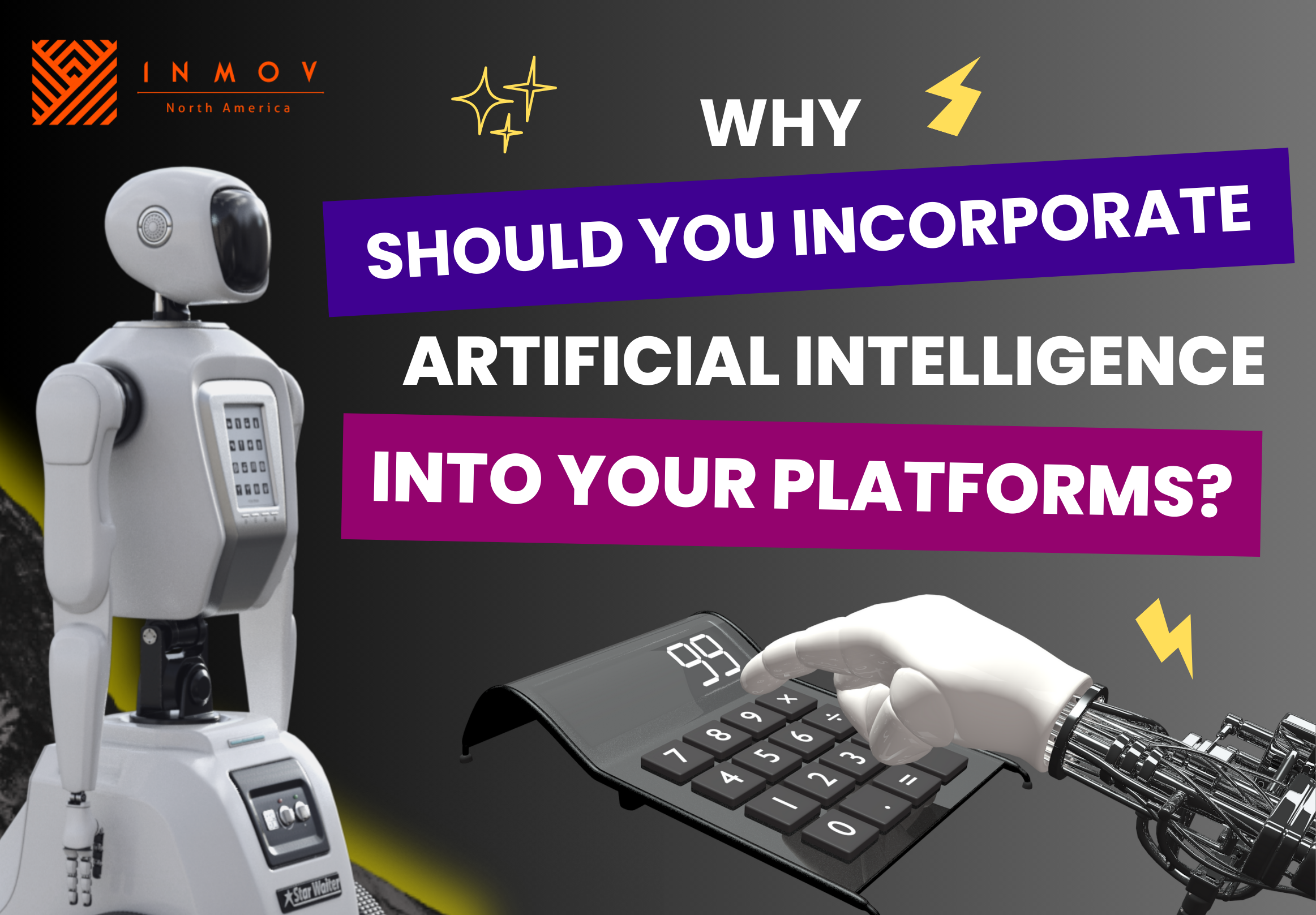- info@inmov.com
- ldaza-ct@inmov.com
- +1 786-983-5330
-
1111 Brickell Avenue
10th Floor. Miami, FL 33131
All rights reserved © 2024

The denomination “artificial intelligence” was first officially used in 1956, but its prevalence has surged in recent times due to the exponential growth of data, advancements in algorithms, and enhancements in computing capabilities and storage capacities. Today, this has paved the way for the automation and formal reasoning we see in computers today, including decision support systems and intelligent search systems that can be designed to complement and augment human capabilities. But, have you wondered how these advances can be useful in your personal life, be it study or work? Beyond just using platforms like ChatGPT, artificial intelligence is capable of much more.
Do you want to optimize your company’s work time and better manage your processes? With Artificial Intelligence is now possible, The digital transformation and the evolution in industry 4.0 have allowed the creation of different tools that today are great support for all types of businesses.
Although Hollywood movies and science fiction novels depict artificial intelligence as human-like robots taking over the world, the current evolution of AI technologies is not nearly as scary or as smart. Instead, artificial intelligence has evolved to provide many specific benefits to all industries.
1. Artificial intelligence automates monotonous learning and discovery by data. Artificial intelligence is different from hardware-based robot automation. Rather than automating manual tasks, artificial intelligence performs frequent, high-volume computerized tasks reliably and without fatigue. For this type of automation, human research is still essential to configure the system and ask the right questions.
2. AI adds intelligence, existing products can be added. In most cases, artificial intelligence will not be sold as an individual application. Instead, the products you already use will be enhanced with AI capabilities, much like Siri was added as a feature to a new generation of Apple products. Automation, conversational platforms, bots, and smart machines can be combined with large amounts of data to improve many technologies in the home and workplace, from security intelligence to investment analytics.
3. Artificial intelligence adapts through progressive learning algorithms to enable data to perform programming. It identifies structure and regularities in data so that the algorithm acquires a skill: it becomes a classifier or predictor. Just as the algorithm can learn to play chess, it can also learn which product to recommend next online. Models adjust when provided with new data. Backpropagation is an artificial intelligence technique that allows the model to make adjustments, through training and aggregated data, when the initial response is not entirely correct.
4. Artificial intelligence examines larger and more complex datasets by employing neural networks with numerous concealed layers. Just a few years back, constructing a fraud detection system with five hidden layers seemed nearly unattainable. That has all changed with incredible computing power and Big Data. A lot of data is needed to train deep learning models because they learn directly from the data. The more data you can give them, the more accurate they become.
5. Artificial intelligence achieves incredible precision through deep neural networks, which was previously impossible. For example, its interactions with Alexa, Google Search, and Google Photos are all based on deep learning, and they continue to get more precise the more we use them. In the medical field, artificial intelligence techniques from deep learning, image classification and object recognition can now be used to detect cancer in MRIs (magnetic resonance imaging) with the same accuracy as highly trained radiologists.
The importance of incorporating artificial intelligence into your company cannot be overstated. By leveraging AI technologies, businesses can enhance efficiency, streamline processes, and gain valuable insights from data analytics. AI enables automation of repetitive tasks, improves decision-making processes, and enables predictive analytics to anticipate future trends. In today’s competitive landscape, embracing AI can give companies a significant edge in innovation and staying ahead of the curve.
At Inmov North America, we specialize in developing AI-powered platforms and integrations tailored to meet the unique needs of our clients. With our expertise, we can help your business harness the power of artificial intelligence to drive growth, improve performance, and unlock new opportunities.
So, what are you waiting for? Join the AI revolution and take your business to new heights with INMOV!